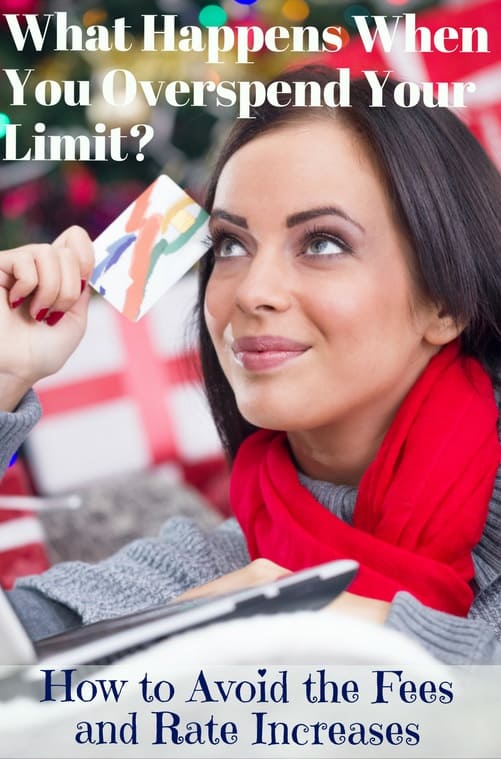Understand the costs of spending over your credit limit and what to do if it happens
You’re close to your credit limit and then you see it, that one thing you absolutely must have…
It happens.
Is your card going to be declined? What happens if you try to charge over your limit? How much does it cost to spend over your limit?
It’s one of the most misunderstood parts of using a credit card. A credit card rule after the financial crisis changed the rules and getting the facts could save you thousands.
Can You Spend More than Your Credit Limit on a Card?
The answer to whether you can go over your credit limit is more complicated than it used to be. The Credit CARD Act of 2009 made it a requirement for card holders to opt-in to fees in order to go over their limit.
Those fees charged when cardholders went over their limit used to be huge, upwards of $10 billion a year, but have now all but died out.
If you agree to the fee when you apply for a card then you can spend more than your limit. If you don’t opt-in to the fee though, any transaction over your limit is automatically declined.
The problem is that you might not know if you agreed to the fee or you might want the protection but didn’t opt-in. If you don’t know, it’s best to call in to customer service to find out.
There are usually rules in a credit card’s over-limit program. Fees usually start around $25 for the first time you spend over your limit but then increase to $35 for any other time in the next year. Some cards will limit the fee to the amount which you overspend.
For example, if you only overspend your limit by $15 then that will be the fee as well.
The bigger cost to going over your credit limit though might be the interest on that fee and an interest rate penalty. That $35 over-limit fee can turn into hundreds if you don’t pay off your balance.
Most credit cards will kick you off the introductory interest rate if you go over your limit or miss a payment. Some cards will increase your rate to the maximum allowable as well which could mean a rate as high as 36% APR.
That rate increase could make it difficult to meet your minimum monthly payment…which could send you into a debt spiral.
Does Going Over Your Credit Limit Hurt Your Credit Score?
Spending over your credit limit won’t destroy your credit score like missing a payment or having an account go to collection but it sure won’t help it either.
Going over your limit on a card means your credit utilization ratio is over 100% for that card. This is one point where 100% isn’t a good thing. Being over your credit limit on multiple cards or even habitually on one card means your overall credit utilization ratio is going to suck.
The people that calculate your credit score like to see a credit utilization of less than 30%, that your debt balance is less than a third of your limit. Having just one card over the limit is going to make it real difficult to have your overall ratio less than a third.
Of course, the best plan is to pay off your credit balance completely every month. That’s going to save you thousands in interest and keep from getting into these debt traps. If you can’t do this, still try to pay your card balance down to less than a third of your limit.
Before going over your credit limit, you might consider using a debt consolidation loan to pay off your balances. Besides saving you from over-limit fees and higher rates, a consolidation loan can lower your payment.
Check your rate on a consolidation loan up to $35,000
What Happens When You Miss a Credit Card Payment?
I’ve seen this whole situation turn into a debt spiral that eventually led to bankruptcy. A reader reported overspending her limit which meant a $25 fee and her interest rate reset to 34% on a $15,000 card balance.

As bad as spending over your limit can be on your credit score, missing a payment is even worse. She ended missing two payments and her FICO dropped 60 points. That meant all the interest rates on her loans increased.
How to Avoid Going Over the Limit on Your Credit Cards
It’s not necessarily a bad thing to opt-in to the over-limit protection on a credit card. Having the protection means your purchases won’t get declined in the event you go over your limit.
That could be important for business owners and even save you some embarrassment on a personal card.
Most credit cards will send out a mobile alert if you get close to your limit but you can also set one up at lower points like half your limit.
If you do get hit with a fee for overspending your credit limit, call customer service to get it removed. Most cards will work with you if this is your first time in the last year.
Spending over your credit limit doesn’t have to be a big deal if you manage it but it can lead to bigger problems. Call your card company to find out if you opted-in to the over-limit protection and the consequences if you overspend your limit. Manage your credit and make sure you protect your credit score.
Leave a Reply